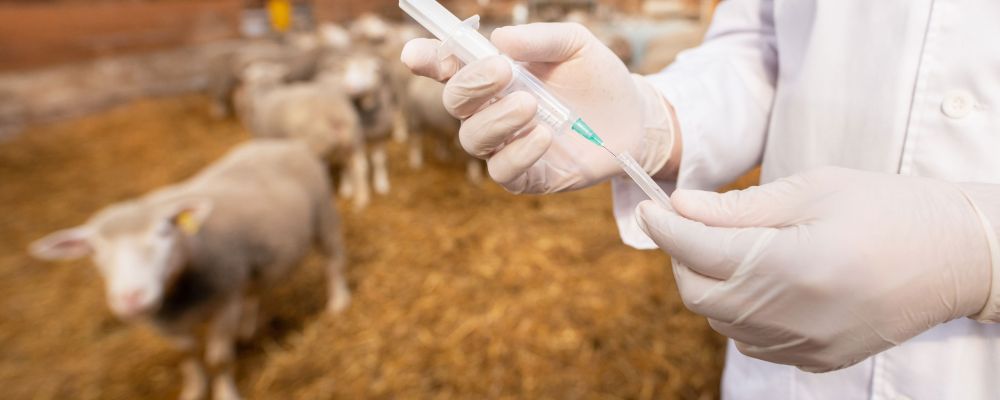- The ANMV
- Our activities
- Administrative formalities
- Our Publications
- Europe & International
- Europe
- International
- World Organisation for Animal Health (WOAH)
- International harmonisation of technical requirements for the registration of veterinary medicinal products (VICH)
- Pharmaceutical inspection cooperation scheme (PICs)
- Organisation for Economic Co-operation and Development (OECD)
- Codex Alimentarius
- Cooperation agreements
- E-learning module
Portal Veterinary medicinal products


Good practices to adopt for the use of antiparasitic drugs in equines
When deworming horses and donkeys, there are several good practices that can help prevent digestive parasites from becoming resistant to antiparasitic drugs and endangering equine health.
In France, 94% of equine owners use deworming treatments to combat digestive parasites. Cyathostomins are the main digestive parasites found in equines: all equines with access to pastures are exposed to them. Most infested animals show no symptoms. However, in the event of heavy infestation, these parasites can cause diarrhoea, stunted growth and weight loss, potentially leading to death in young animals.
Using inappropriate antiparasitic drugs or doses that are not recommended can have several consequences. The first is promoting the development of resistance in parasites to the agents used. The second is jeopardising the animal's health, with the disruption of its intestinal microbiota and the risk of toxicity. Antiparasitic drugs can also be toxic to wildlife, especially to coprophagous insects such as dung beetles and to aquatic species. Owners of equines are advised to ask their veterinarian to choose a suitable antiparasitic treatment and check that there is no resistance to the drugs used.
Good practices to adopt:
Avoid systematic treatment
Antiparasitic drugs should only be administered when the level of infestation exceeds a threshold that could have an impact on the animal's health. The presence of small numbers of digestive parasites is normal and poses no risk to the animals concerned. Moreover, not all animals in a batch become infested in the same way. It has been found, for example, that around 20% of adult equines in a batch shed 80% of all cyathostomin eggs in the environment. To find out the degree to which animals are infested, a veterinarian can help to identify and count the eggs in dung (coproscopic analyses). Based on the results of these analyses, it is advisable to only deworm those animals shedding more than 500 cyathostomin eggs per gram of dung, in order to reduce the level of parasite infestation in fields and protect the most susceptible animals.
Do not deworm animals too early in the year
Deworming too early in the year promotes the selection of resistance to antiparasitic drugs. At the end of winter, the population of parasites susceptible to deworming treatments is small in fields due to larval mortality associated with cold temperatures. Treating animals in spring will result in the shedding of resistant parasites, which will compete with the population of susceptible parasites remaining in the pasture. Horses and donkeys will therefore be more prone to reinfestation with resistant parasites. Furthermore, the use of macrocyclic lactones in spring kills the eggs and larvae of coprophagous insects, on which the recycling of dung depends.
Use the right product for the right parasite
Not all deworming treatments are effective against all parasites at the same stages. For example, the antiparasitic drug fenbendazole is only effective against adult cyathostomins. Products containing this agent should not be used in late autumn or winter, when the parasite population is mainly made up of larvae. It is important to seek advice from a veterinarian to determine the appropriate deworming treatment.
Carefully assess the weight of the animal to be treated
The dose of antiparasitic agent to be administered depends on the animal's weight. A dose that is too low reduces the efficacy of the antiparasitic drug and promotes the development of resistance in parasites, which will survive the treatment. Conversely, a dose that is too high can be toxic to the horse or donkey being treated.
Use products and a mode of administration suited to equines
Only antiparasitic drugs with marketing authorisation for use in equines should be used: if products intended for other animal species are administered, inappropriate doses may be used, or they may contain compounds that are toxic to equines.
Moreover, tube deworming should be avoided: antiparasitic drugs for equines come in paste form. The dose of antiparasitic agent required and the effects of the product on animals have been tested using this method of administration. The consequences for equines of liquid deworming treatments given through a tube are not known.